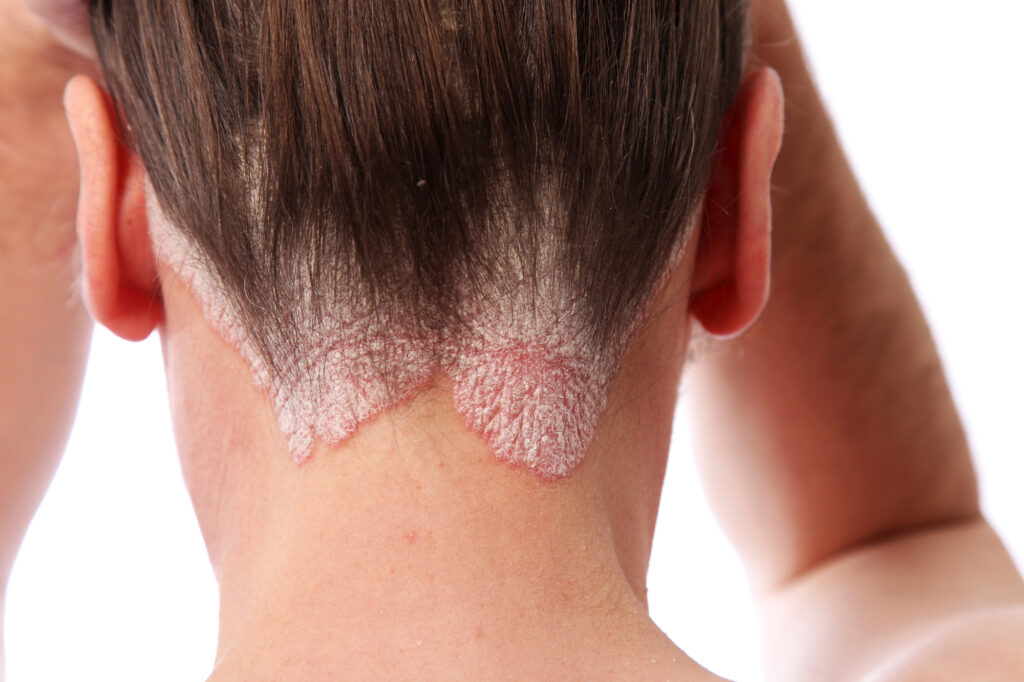When diagnosed early, Psoriasis can be easily treated. But stigma and lack of awareness regarding this skin condition is the biggest hindrance in early treatment.
A known and proven fact since times immortal is that looks matter. A main cause of social embarrassment is skin disorders especially conditions like psoriasis. About three percent of the world’s population suffers from psoriasis. It is a serious skin condition that has no known permanent cure and no single treatment that works for all.
Psoriasis can trigger any time and it can appear on any part of the body such as scalp, ears, nails, feet and hands, lips, eyelids, etc. They can be small patches that go unnoticed or big red patches on the skin that are very itchy. There are many different forms of psoriasis, and they can happen at different parts of the body. Treatment management of psoriasis depends on the type and location of the disease.
When ignored and not treated in time, psoriasis can cause various serious health implications such as:
- Inflammation and pain in joints. This is called psoriasis arthritis. It can make it difficult for a person to work and walk.
- Inflammatory diseases
- Heart conditions
- Hypertension
- Diabetes
- Lupus
- Obesity
- Irritable bowel syndrome
- Suicidal tendencies and depression
- Trauma and shame
- Pneumonia
- Septicemia
- Heart failure
- Conjunctivitis and other eye conditions
- Pregnancy complications
- PCOS
Psoriasis is not only physically very uncomfortable; its psychological damage is also very long lasting. It affects men, women, children in the age group of 15-35 the most. The lack of awareness, sympathy and correct diagnosis makes psoriasis a lifelong suffering for those affected.
The ray of hope is that when diagnosed early, it can be easily treated. All one needs to start with is a visit to an experienced dermatologist.
Cause of psoriasis
Recorded medical assessment of psoriasis dates back to 1800s. But the disease is much older than this. This itchy and scaly condition derives its name from Greek word. The right doctor to treat psoriasis is a dermatologist. However, the cause of psoriasis does not stem from a dermatological cause rather it is an auto immune disorder, and its effects are more than skin deep.
When the white blood cells are become overactive, they start producing excess amounts of cytokines. This autoimmune malfunction causes a trigger and cascade of chemical reactions in the skin and other organs. The cumulative effect of such reactions causes an accelerated multiplication of the cells in outer layer of skin (keratinocytes). The usual rate of multiplication of skin cells is about one month but in psoriasis this rate is about three to five days. The most common symptom of psoriasis is the accumulation of dead cells in the form of patch and silvery scaled patches of skin.
Worldwide research is still on into understanding the causes of psoriasis. Genetics and environmental factors have so far emerged as top two probable causes of psoriasis.
Treatment of psoriasis
Stigma and lack of awareness regarding psoriasis is the biggest hindrance in early treatment of this autoimmune disorder. Simple treatments go a long way in easing the life of the patient. These include:
- Identify and avoid triggers: some common triggers for psoriasis are infections, weather, injury, stress, addictive smoking and drinking, some medications, and sudden withdrawal of some systemic drugs.
- Topical treatments: moisturizers are the best friend of a psoriasis patients. Make sure you chose a fragrance free one. Other topics include steroids, coal tar creams and vitamin A and D creams.
- Phototherapy using lasers, sunlight, UVA and UVB treatment.
- Systemic treatment using retinoids, methotrexate
- Biologics
Biologics are the latest in treatment of psoriasis. They are effectively used in management of severe psoriasis. Do not delay the treatment or rely on home remedies too much. You need to observe the triggers, understand that the symptom that you see today is not a prediction for future symptoms. Talk to other people who are in the same situation as you as it will help improve your understanding of the disease.
Psoriasis treatment is done in the form of a management plan and being diligent with the treatment will help the patient avoid comorbidities and lead a happy life. Never stop a treatment or medication without consulting with your dermatologist first. Work closely with your dermatologist and avoid the triggers as much as possible. Follow a generally healthy lifestyle and include regular exercise in your routine to reduce the risk of psoriasis.
The article is contributed by Dr. Rinky Kapoor, Consultant Dermatologist, Cosmetic Dermatologist & Dermato-Surgeon, The Esthetic Clinics.
Article Source – https://www.thehealthsite.com/diseases-conditions/psoriasis/how-serious-is-psoriasis-833598/







